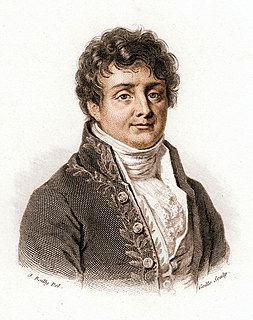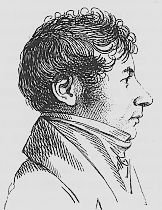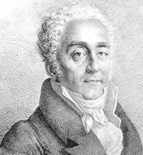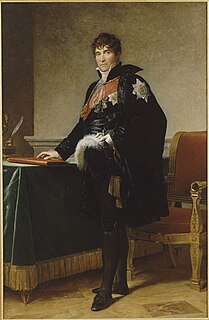 W
WAntoine-Vincent Arnault was a French playwright.
 W
WCharles-Louis Balzac was a French architect and architectural draughtsman.
 W
WClaude Louis Berthollet was a Savoyard-French chemist who became vice president of the French Senate in 1804. He is known for his scientific contributions to theory of chemical equilibria via the mechanism of reverse chemical reactions, and for his contribution to modern chemical nomenclature. On a practical basis, Berthollet was the first to demonstrate the bleaching action of chlorine gas, and was first to develop a solution of sodium hypochlorite as a modern bleaching agent.
 W
WGilbert Joseph Gaspard, comte de Chabrol de Volvic was a French official.
 W
WNicolas-Jacques Conté was a French painter, balloonist, army officer, and inventor of the modern pencil.
 W
WLouis, baron Costaz (17 March 1767, in Champagne-en-Valromey was a French scientist and administrator.
 W
WJean-Marie-Joseph Coutelle was a French engineer, scientist and pioneer of ballooning.
 W
WDominique Vivant, Baron Denon was a French artist, writer, diplomat, author, and archaeologist. He was appointed as the first Director of the Louvre museum by Napoleon after the Egyptian campaign of 1798–1801, and is commemorated in the Denon Wing of the modern museum and in the Dominique-Vivant Denon Research Center. His two-volume Voyage dans la basse et la haute Egypte, 1802, was the foundation of modern Egyptology.
 W
WJean-Baptiste Joseph Fourier was a French mathematician and physicist born in Auxerre and best known for initiating the investigation of Fourier series, which eventually developed into Fourier analysis and harmonic analysis, and their applications to problems of heat transfer and vibrations. The Fourier transform and Fourier's law of conduction are also named in his honour. Fourier is also generally credited with the discovery of the greenhouse effect.
 W
WÉtienne Geoffroy Saint-Hilaire was a French naturalist who established the principle of "unity of composition". He was a colleague of Jean-Baptiste Lamarck and expanded and defended Lamarck's evolutionary theories. Geoffroy's scientific views had a transcendental flavor and were similar to those of German morphologists like Lorenz Oken. He believed in the underlying unity of organismal design, and the possibility of the transmutation of species in time, amassing evidence for his claims through research in comparative anatomy, paleontology, and embryology.
 W
WPierre Jacotin (1765–1827) was the director of the survey for the Carte de l'Égypte , the first triangulation-based map of Egypt, Syria and Palestine.
 W
WPierre Amédée Emilien Probe Jaubert was a French diplomat, academic, orientalist, translator, politician, and traveler. He was Napoleon's "favourite orientalist adviser and dragoman".
 W
WEdme-François Jomard was a French cartographer, engineer, and archaeologist. He edited the Description de L'Égypte and was a member of the Institut d'Egypte established by Napoleon. He supervised the educational and cultural mission sent to France from Egypt by Muhammad Ali of Egypt.
 W
WMichel Ange Lancret, was an engineer with the French Corps of Bridges and Roads.
 W
WJean-Baptiste Lepère was a French architect, father-in-law of the architect Jacques Hittorff. He was the designer of the church of Saint-Vincent-de-Paul, Paris, largely revised by Hittorf during its protracted execution, and one of the architects who worked on raising the colonne Vendôme.
 W
WGaspard Monge, Comte de Péluse was a French mathematician, the inventor of descriptive geometry, and the father of differential geometry. During the French Revolution he served as the Minister of the Marine, and was involved in the reform of the French educational system, helping to found the École Polytechnique.
 W
WFrançois-Auguste Parseval-Grandmaison was a French poet.
 W
WFrançois Charles Hugues Laurent Pouqueville was a French diplomat, writer, explorer, physician and historian, member of the Institut de France.
 W
WMichel Louis Etienne Regnaud, later 1st Count Regnaud de Saint-Jean d'Angély was a French politician.
 W
WJean-Lambert Tallien was a French political figure of the revolutionary period.
 W
WGuillaume André Villoteau was a French musicologist.